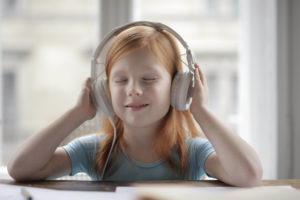 Our recent experience of having our children schooling from home has made many of us realise that it can be a challenging task. Many families do this as a way of life without the specific guidance of teachers. Through the Australian Music curriculum, students can study aural skills including rhythm, tempo, pitch, dynamics, form and timbre. As your child moves through primary and into secondary school, they can build upon their skills through practice, performance, composer studies and composing.
Our recent experience of having our children schooling from home has made many of us realise that it can be a challenging task. Many families do this as a way of life without the specific guidance of teachers. Through the Australian Music curriculum, students can study aural skills including rhythm, tempo, pitch, dynamics, form and timbre. As your child moves through primary and into secondary school, they can build upon their skills through practice, performance, composer studies and composing.
Whether you’re a seasoned pro, brand new to home schooling or would like to compliment your child’s music lessons with music appreciation, we’ve put together a few ideas for you to explore.
Every home needs to sing
Nothing evokes emotion as much as song. They are packed with memories of people and places and mark milestones in our lives. Songs can evoke sadness, calm, joy and lift our mood.
If you sing with a toddler, they will follow your lead and sing louder and more quietly when you do. This is the first step to aural skill development.
So, sing away with your kids! Explore different dynamics, pitch, rhythm, and tempo – see who can sing the fastest, the quietest, or make up a simple tune and ask them to copy you. Your child will be learning aural skills without even realising it.
Have a performance or games night
Kids love to perform. To develop your child’s performance skills and confidence, set-up a family performance or musical game night. Try these suggestions:
- A performance could be a piece of music they’re working on, a choreographed dance, or their favourite song.
- Also try fun games like “Follow my Lead”. Beat a rhythm on a drum or sing a made-up tune and get someone else to try and repeat it back.
- Listen to a piece of music and see who can identify the most instruments.
- Play charades with song names and the loser (or winner) must sing the song.
Make up songs
Our family is notorious for doing this. Make up a short song. Be as crazy as you can – what’s for dinner, fairies in the garden, superheroes in space. Without realising it, your child is composing simple tunes that have different dynamics, pitch, rhythm and tempo!
Listen to music
The easiest way to bring music appreciation into the home is to make music part of your family’s everyday life.
Have music playing in the background at home or in the car. Play different musical styles – classical, jazz, new music, old music or different versions of their favourite songs.
Go on an outing to see the symphony, musical theatre or a concert and encourage your kids to listen to the music and talk about what they hear, what they like or don’t like.
This will not only provide them with an appreciation of different music, but help develop critical listening skills and train their ear.
There are many ways to appreciate music as a way of learning from home. If you’re looking for a formal way to incorporate music into your home schooling curriculum, or wish to increase your child’s appreciation of music, contact us here.

